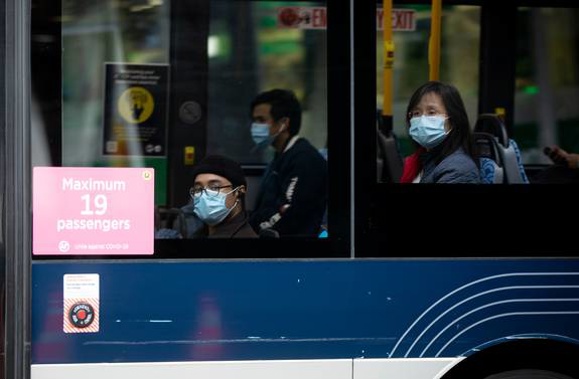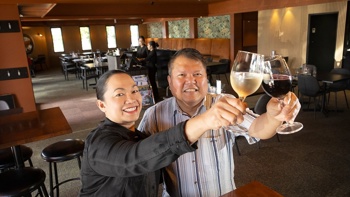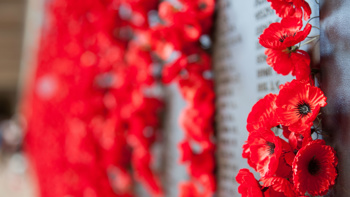
Today there are 5554 new cases of Covid-19 in the community, says the Ministry of Health.
The ministry is also reporting a further 11 virus related deaths, and 368 people in hospital, including seven in intensive care.
Of today's deaths, two were in their 60s, five were in their 70s, one in their 80s, and three were aged over 90.
The average age of those in northern regional hospitals is 61.
Today's community cases are in Northland (138), Auckland (1,659), Waikato (372), Bay of Plenty (194), Lakes (76), Hawke's Bay (179), MidCentral (223), Whanganui (54), Taranaki (188), Tairāwhiti (46), Wairarapa (71), Capital and Coast (506), Hutt Valley (219), Nelson Marlborough (227), Canterbury (839), South Canterbury (76), Southern (442), West Coast (40), Unknown (5).
There are also 70 new imported border cases.
The ministry says they have been planning for a challenging winter.
"Covid-19 continues to circulate in the community and we have also started to see the impact of winter respiratory illnesses, like flu, which are putting additional pressure on our health system."
"[We] are working with our regional colleagues to manage capacity and demand, prioritise urgent care and deliver as much planned care as possible."
"We need everyone to do their bit to help us get through winter."
The seven-day rolling average of community cases today is 5777 - last Wednesday it was 6035.
The ministry is encouraging everyone to get a flu vaccine this year for protection against four strains of the virus, and the need for hospitalisation.
Since the beginning of the pandemic, there have been 1,248,298 cases of Covid-19 in New Zealand.
There are currently 40,365 active cases in the community.
Today's reported deaths increase the total number of publicly reported deaths with Covid-19 to 1359.
The seven-day rolling average of reported deaths is 13.
Rise in reinfection
Auckland's Te Whānau o Waipareira Trust is seeing families being reinfected with Covid-19 for the third time - prompting a fresh appeal for people to be vigilant this winter.
Yesterday there were 6133 new community cases, 377 hospitalisations and 23 deaths.
With the colder season now under way, the West Auckland community service's clinical director Ngaire Harris said some households were now dealing with "multiple" infections of Covid-19: including catching Omicron for a second time.
Concerningly, those families often weren't reporting positive results to the Ministry of Health – meaning many new cases of reinfection may be going unrecorded.
Communities the trust worked with were among those hit by last year's Delta outbreak – and were also among the first to be affected by the Omicron wave that took off in Auckland in late summer.
A disproportionate rate of coronavirus-linked deaths have been Māori and Pasifika people, who, even after taking age and pre-existing conditions into account, were respectively two and half and three times more likely to need hospital-level care for Covid-19.
"That's always concerning, because you don't want to see your tamariki, or your kuia and your elders suffering," Harris said of the higher risk.
On top of that, the return of influenza had also begun taking a toll.
"The message we're trying to push is whānau wellbeing – staying well and keeping well," she said.
"We are learning to live with [Covid-19] – and whānau really do care about their health now, and do have a greater awareness of what the symptoms are."
The scale of reinfection in New Zealand isn't known, as the Ministry of Health doesn't report that specific data.
Evidence suggested reinfections were unlikely within 90 days of a previous infection, and those who caught the virus again needed to follow home isolation rules.
"Reinfection does not generally cause serious illness for most people but a diagnosis of reinfection with Covid-19 can be important for older people, people who have high risk conditions, or people who have frequent close contact with vulnerable people," its guidance stated.
The ministry was working on a system that would enable it to formally collect reinfection data.
A paper released by Covid Modelling Aotearoa this month found a second wave could hit in the second half of the year, driven in part by people getting reinfected because their immunity has waned.
The wave was estimated to peak at fewer daily cases than the first wave, as well as fewer hospitalisations - unless infections were prevalent among higher-risk people such as the elderly.
In this scenario, up to 46 per cent of cases had already had Omicron earlier in the year.
The paper also found that higher transmission - either because of further relaxing of public health measures, or more risky behaviour - didn't necessarily lead to higher peaks.
Yesterday, one of the modellers behind that work, Professor Michael Plank, told the Herald the arrival in New Zealand of new Omicron subvariants BA.4 and BA.5 could allow that second wave take off sooner rather than later.
Otago University virologist Dr Jemma Geoghegan said reports of reinfections across Auckland weren't surprising, given the region's Omicron wave peaked around three months ago, and that immunity from vaccination and infection was known to wane over time.
"One of the knowledge gaps we have right now is our very low genomic surveillance: while we're sequencing a good proportion, it's still probably fewer than two per cent of cases."
Ideally, she said, people getting reinfected now would be getting referred for PCR tests so officials could learn more about what was driving them.
The BA.2 sub-variant was accounting for nearly all sequenced cases at the moment, so it was likely many of those people being reinfected were suffering it a second time, unless they'd had the BA.1 type.
But having a clearer picture would become increasingly important as new variants emerged, Geoghegan said.
Local cases of BA.4 and BA.5 - which have been shown to more effective at causing breakthrough infections among vaccinated and boosted people – likely now numbered in the thousands here.
"So, it's clear that they've got a foothold in the community – but we lack the granular surveillance we need to actually know the true scale of it."
Knowing more about what was causing reinfections would also help scientists learn what treatments could be used, or how and whether further boosters should be offered.
Otago University epidemiologist Professor Michael Baker said what the trust was reporting fitted with the international situation.
"In general, reinfection will become the norm at a certain point, as reinfection rates inevitably rise with more people getting infected," he said.
"The people who got infected earlier on will also mainly be younger and more socially active so they're going to be at the forefront of people getting reinfected as well."
Baker urged people to keep following key health measures, like mask use, and to ensure they were vaccinated and boosted.
It was also crucial that people reported their infections and self-isolated with household contacts for at least seven days, he said.
"If we did that perfectly, the pandemic would stop."
Director general of health Dr Ashley Bloomfield said the generally decreasing trend in case numbers was "encouraging" - but still double the number of infections that modelling had predicted.
Further, only about two-thirds of the country's infections were likely being identified.
Cases were increasing in those aged over 65, who were more likely to be hospitalised or to die from the virus and the rollout of a fourth Covid vaccine for those most at risk would begin shortly, Bloomfield said.
Take your Radio, Podcasts and Music with you









